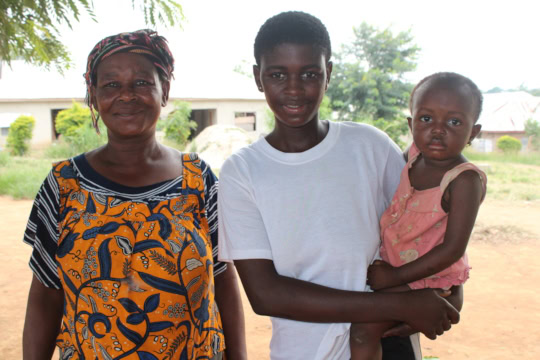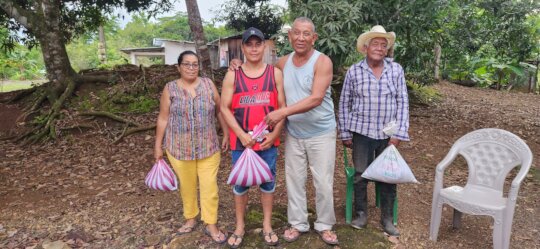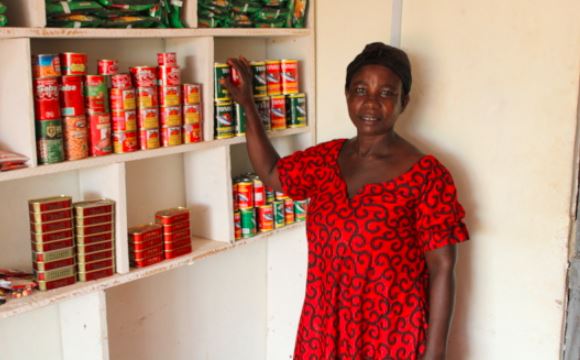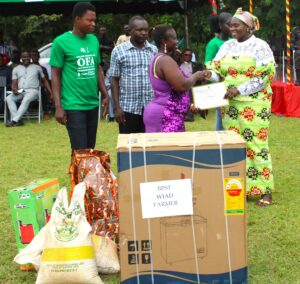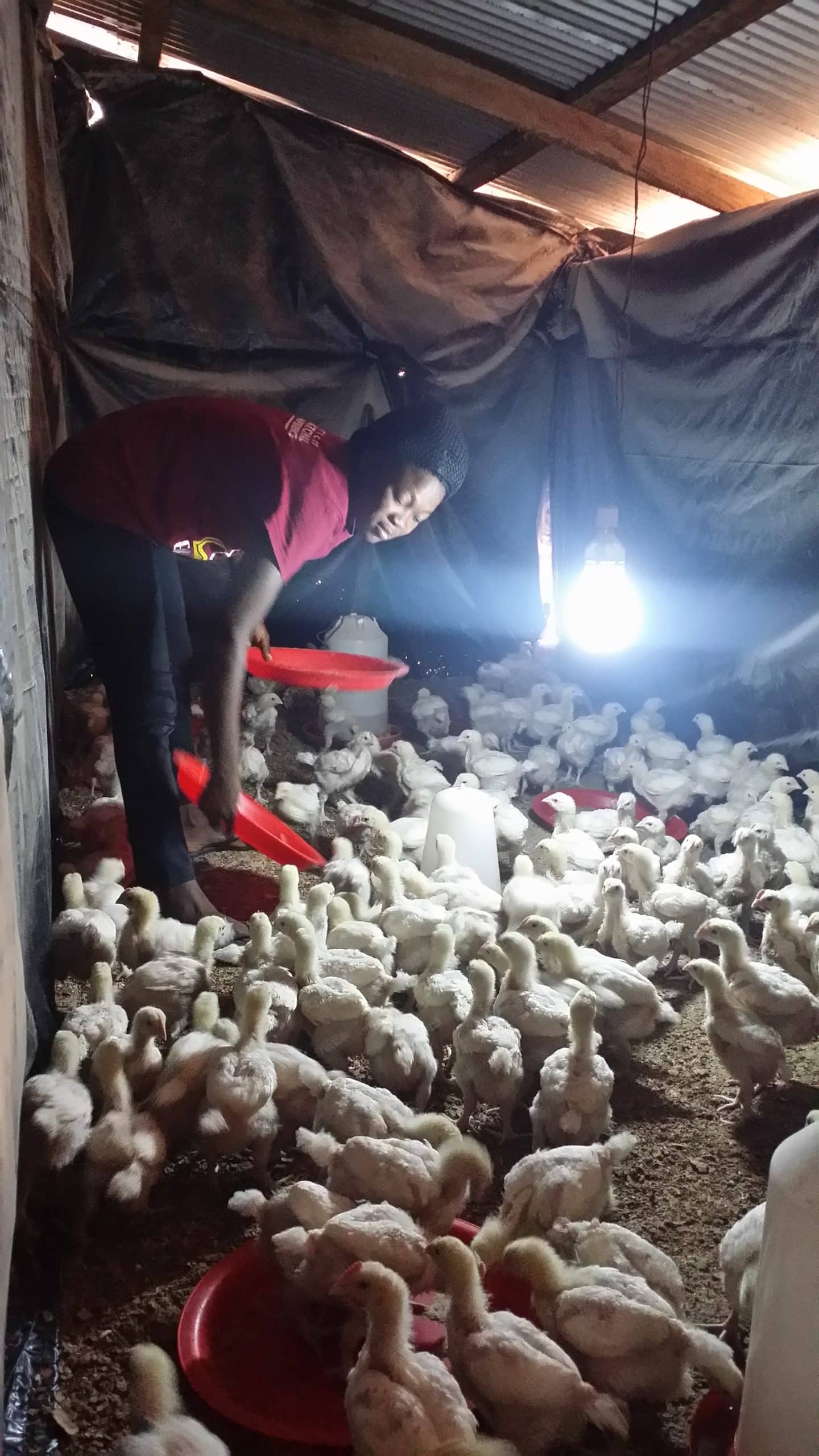
Eva Learns the Value (and the Challenges) of Raising Chickens
By Ebenezer Osei Jones – Graduate Entrepreneurship Program Manager
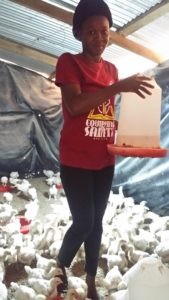
Eva with her chickens.
Poultry, particularly chickens, is commonly kept by 90–95% of the households in rural Ghana. The purpose of raising chickens is to provide protein for the family and to sell for extra income. Raising chickens is very popular among rural people because it’s a smaller investment with a shorter time to income. Owning chickens has numerous benefits, including the high demand for chicken meat and the eggs that they provide. Other benefits of rearing chickens are: the small amount of capital needed to start; the rapid return on investment; the continuous source of income it provides; the fact that poultry farming requires less water; the ability to use poultry droppings as a source of fertilizer; the part- or full-time jobs created by poultry farms; and the high nutritional value of poultry meat and eggs.
To take advantage of these benefits, Self-Help International’s Graduate Entrepreneurship Program (GEP) empowered Eva, a member of the 2019/2020 GEP cohort, to get started in poultry farming. The GEP program provided Eva with 100 chickens and a small amount of other capital so that she could get her first-ever hands-on practice raising poultry from newborn chicks to adults. Eva is also learning how to do the marketing to sell them locally. Eva succeeded by adjusting her operations to include a combination of already existing and new technologies; taking advantage of already available agricultural products such as feed and medication; and using good animal husbandry practices.
Like all other entrepreneurial ventures, raising chickens can come with many challenges, and farmers rarely get the benefit they anticipate. Eva was aware of some of the more widely known challenges, such as poultry mortality related to diseases, poor feeding, inadequate medication, and bad husbandry practices. However, Eva was confronted by an “out of the norm” challenge: she faced a 30% mortality in the first week of raising her chickens due to the stress her birds encountered as a result of transporting them from Accra to Kumasi (approx. 120 mi.). Nonetheless, she was able to raise her first 70 birds from day one to marketing. Unfortunately, Eva’s first production was earlier than Christmas (when the demand for chicken is higher), and she did not get a very good market price for her hard work.
Despite these challenges, Eva learned from her mistakes and went in for another set of 100 birds. This time around, Eva purchased her day old chicks closer to Kumasi and continued to observe good animal husbandry practices. With this simple adjustment, Eva was able to reduce chick mortality from thirty percent (30%) to seven percent (7%). Her second batch of chickens met the Christmas festivities, and she got a very good market price for her chicks. She has now gone for her third batch of chicks and after two weeks (end of Feb. 2020), she has yet to record a single mortality.
Eva is from northern Ghana, and when she graduates from GEP, she wants to start a poultry farm up north and show her community that women can be involved in agriculture.

 Previous Post
Previous Post Next Post
Next Post